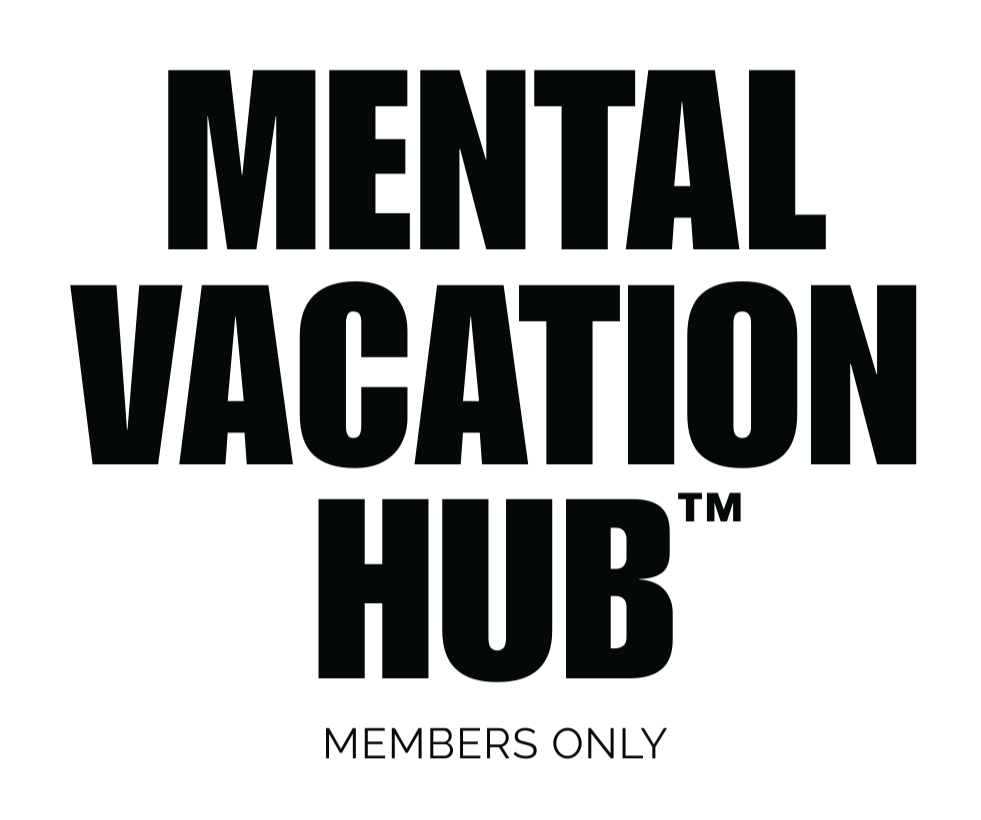Stage 3 Burnout: The Crisis Point Most Executives Ignore
You can't ignore it anymore.
Something is seriously wrong.
You wake up dreading the day ahead. Your brain feels broken. Simple tasks require enormous effort. You're making mistakes you never made before. Colleagues notice something's off. Your performance is slipping in ways you can't hide.
This is Stage 3 burnout, the crisis point most executives try to push through.
Stage 3 represents chronic burnout with significant functional impairment.
You're no longer just tired or stressed. Your cognitive function is compromised. Your emotional regulation is failing. Your physical health is deteriorating.
Yet many executives continue working at this stage, telling themselves they just need to get through one more deadline, one more quarter, one more project.
Stage 3 burnout requires immediate intervention. Continuing current patterns will push you into Stage 4 or 5, where recovery becomes exponentially more difficult and time-consuming.
Understanding the severe burnout symptoms of Stage 3 helps you recognize when pushing through is no longer an option.
The Transition from Stage 2 to Stage 3
Stage 3 marks a qualitative shift in burnout severity.
In Stage 2 burnout, you were struggling but managing. You could still perform most of your job functions, even if they required more effort than usual.
Symptoms were noticeable but not yet debilitating.
Stage 3 crosses into crisis territory. You're no longer managing effectively. Work performance declines visibly. Others notice and express concern.
You can't hide the problem anymore, though many executives try desperately to maintain appearances.
The key difference is functional impairment. In Stage 2, you're tired and stressed but still capable. In Stage 3, your capacity is significantly compromised. Tasks that should be routine feel overwhelming.
Your professional effectiveness is clearly diminished.
This transition often happens gradually over months, making it difficult to recognize when you've crossed the line.
You normalize each incremental decline until you're deep into crisis without realizing how far you've fallen.
Physical Symptoms Intensify to Crisis Levels
Your body screams for attention in Stage 3.
Sleep becomes severely disrupted or excessive. You either can't sleep at all, lying awake for hours despite exhaustion, or you sleep excessively without feeling restored. Some executives at Stage 3 sleep ten to twelve hours and wake feeling as depleted as when they went to bed.
Sleep medication becomes necessary rather than occasional.
Chronic pain and tension become constant companions. Headaches are daily occurrences. Muscle tension causes significant discomfort. Back, neck, and shoulder pain interfere with daily activities.
Physical therapy and pain medication provide minimal relief because the root cause is unaddressed chronic stress.
Cardiovascular symptoms emerge or worsen. You experience heart palpitations, chest tightness, or irregular heartbeat. Blood pressure increases. These symptoms are frightening and may prompt medical evaluation, though doctors often find no structural heart problems.
According to research from the American Heart Association, the issue is your nervous system's chronic dysregulation.
Digestive problems become severe. You develop conditions like irritable bowel syndrome, chronic acid reflux, or significant changes in appetite and weight. Stress directly affects gut function through the gut-brain axis. These symptoms interfere with daily life and may require medical treatment.
Your immune system fails consistently. You're sick frequently with infections that last for weeks.
Minor illnesses become major disruptions. Your body cannot mount effective immune responses because chronic stress suppresses immune function. You may develop autoimmune symptoms or conditions.
Chronic fatigue dominates your experience. You're exhausted all the time, regardless of sleep. Physical activities that used to be easy now feel impossible. Climbing stairs leaves you winded.
Your body feels heavy and depleted constantly.
I remember this phase clearly. I was getting sick every two weeks. My chest would tighten randomly throughout the day. I'd sleep nine or ten hours and wake up feeling like I hadn't slept at all.
My body was trying to force me to stop, but I kept pushing.
Cognitive Impairment Becomes Severe
Your brain stops working the way it should.
The fog is constant now. Not the occasional afternoon slump you can push through with coffee, but a thick, persistent inability to think clearly about anything.
You sit in meetings struggling to follow conversations that should be straightforward. You read the same email three times and still can't process what it's asking you to do.
Your memory fails you in ways that would have been unthinkable six months ago.
You forget meetings you scheduled yourself. You lose track of what someone just said mid-conversation. A colleague references a discussion from last week and you have absolutely no recollection of it happening.
Every decision feels impossible.
What to prioritize today. Which vendor to choose? How to respond to a simple question. You second-guess everything, avoid making choices when you can, and when you're forced to decide, you lack any confidence in your judgment.
You know your thinking is impaired, but you can't seem to fix it.
The strategic thinking that made you good at your job has disappeared entirely.
You can barely manage the task right in front of you, let alone think three months ahead or see the bigger picture. Work that used to take an hour now takes half a day because your brain moves so slowly.
You avoid anything requiring deep analysis because it feels completely beyond your capacity.
I remember sitting in front of my laptop for two hours trying to write a single email to a client. The words wouldn't come. My brain felt like it was moving through thick mud. I'd start a sentence, forget where I was going, start over.
Eventually, I gave up and told them I'd get back to them later.
Emotional and Behavioral Crisis Symptoms
Your emotional world collapses in Stage 3.
Work that once felt meaningful now feels completely pointless. You question why you're doing any of this, why it matters, why you ever cared. You feel disconnected from your team, from your organization's mission, from any sense of purpose.
Nothing seems to matter anymore, and that realization is terrifying.
The anxiety is overwhelming and constant. You worry about everything related to work, about failing, about being found out as incompetent, about letting everyone down. The anxiety doesn't respond to logic or reassurance.
It just sits there, a constant weight on your chest, sometimes spiking into full panic attacks that leave you gasping for air.
Depression settles in alongside the anxiety.
Not just sadness, but a deep hopelessness about your situation. Nothing brings joy. Nothing feels satisfying. You go through the motions because you have to, but you feel empty inside.
Many executives at this stage meet the clinical criteria for depression, though they often don't recognize it as such.
Your emotions become completely unpredictable. You cry unexpectedly over small things. You snap at people who don't deserve it, then feel terrible about it later. You swing between feeling nothing at all and feeling everything too intensely.
The emotional volatility damages your relationships but you can't seem to control it.
You withdraw from everyone. Social interaction feels unbearably draining. You cancel plans with friends, avoid your family when you can, and stop reaching out to anyone.
You know isolation is making things worse, but you simply don't have the energy to maintain connections.
The fantasies about escape become constant. Quitting your job and disappearing.
Running away from all your responsibilities. Some executives at this stage have thoughts about not existing anymore, not active plans, but a passive wish that they could just stop having to deal with everything.
If you're having these thoughts, please talk to a mental health professional immediately.
This was the stage where I started snapping at my daughters over nothing. I'd forget client meetings I'd scheduled days before. I cut off all communication with people around me, annoyed by being asked for news but not really being there.
I fantasized constantly about just disappearing, about not having to be responsible for anything anymore.
Professional Impact and Performance Decline
Your work performance falls apart in ways you can't hide anymore.
You're making mistakes you never made before. Missing deadlines. Overlooking important details. Making errors in work you've done successfully for years. Others have to catch your mistakes and fix them.
The embarrassment is acute, but you can't seem to stop it from happening.
Your leadership presence is gone.
Your team senses something is seriously wrong. You can't inspire or motivate anyone when you're barely functioning yourself. Morale suffers when the leader is clearly struggling, and you know it, but feel powerless to change it.
Professional relationships deteriorate rapidly.
Your irritability and unpredictability make people wary of you. Trust erodes. Colleagues stop bringing you into important conversations because they're not sure how you'll react. The isolation at work mirrors the isolation in your personal life.
You avoid anything challenging. Tasks requiring real cognitive effort or emotional energy get postponed indefinitely. You take the easiest path on everything, which means innovation and problem-solving disappear from your work entirely.
You're in survival mode, just trying to get through each day.
Performance reviews start reflecting the decline. Your supervisor documents concerns about your work quality or reliability. You might face a performance improvement plan or serious conversations about your future with the organization.
The career you've built feels like it's crumbling, which adds another layer of stress to an already impossible situation.
Why Executives Try to Push Through Stage 3
Despite everything falling apart, most executives keep going.
The fear of appearing weak is overwhelming. Admitting you're struggling feels like professional suicide. You've built your identity on being capable, on handling anything, on never needing help.
Acknowledging you can't do this anymore threatens everything you believe about yourself.
The financial pressure feels impossible to escape. You have a mortgage, kids' education to fund, and a lifestyle that requires your income.
Taking time off or reducing hours feels financially impossible, even though continuing is destroying you. The trap feels complete.
Your identity is so tied to your role that stepping back feels like losing yourself.
You don't know who you are without this job, this title, these responsibilities. Your career has defined you for so long that imagining life differently seems impossible, even terrifying.
The guilt is crushing. Your company needs you. Your team depends on you. Important projects require your involvement.
Letting everyone down feels worse than continuing to suffer, so you keep pushing through even though you know you're failing.
You keep hoping things will get better. Just get through this quarter. Just finish this project. Just make it to the holiday break. You believe relief is coming soon, so you push through one more day, one more week, one more month.
But the relief never comes because the underlying patterns don't change.
Most dangerously, you don't realize how impaired you actually are. You've normalized the symptoms gradually over time. You think you just need to try harder, manage your time better, and be more disciplined.
You don't understand that Stage 3 burnout is a medical emergency requiring immediate, comprehensive intervention.
The Urgent Need for Intervention at Stage 3
Here's what you need to understand: Stage 3 is a crisis.
This isn't something you can push through with better self-care or a vacation.
Continuing without real intervention leads to Stage 4 or 5, where symptoms become even more severe and recovery takes exponentially longer. You're at a breaking point, whether you want to admit it or not.
Your health is genuinely at risk. The chronic stress you're under contributes to cardiovascular disease, autoimmune conditions, metabolic disorders, and serious mental health crises.
Research published in the Journal of Occupational Health Psychology shows these aren't abstract future concerns but real, immediate risks with long-term consequences.
Your career is in jeopardy right now.
The performance decline is visible. Without intervention, you're looking at potential job loss, damaged professional reputation, or career derailment that takes years to recover from.
The irony is that the thing you're afraid will hurt your career—taking time to recover—is actually what will save it.
Your relationships are suffering damage that gets harder to repair the longer you wait. Your partner, your kids, and your friends are all affected by your burnout. They're watching you struggle and feeling helpless. The longer this continues, the more repair work you'll need to do later.
The recovery timeline gets longer with every week you delay.
Intervening now typically requires three to six months of focused effort. Wait until Stage 4 or 5 and you're looking at six months to a year or more.
Early intervention isn't just easier- it's faster.
What Stage 3 Intervention Looks Like
Recovery from Stage 3 requires real, comprehensive changes.
Start with a medical evaluation.
See your doctor about the physical symptoms. Rule out other conditions. Get treatment for the sleep problems, the anxiety, and the depression that have developed alongside the burnout.
This isn't optional anymore.
Professional support becomes necessary, not just helpful. Stage 3 is too severe to navigate alone.
Work with a burnout coach for executives or enroll in a structured burnout recovery program designed for severe cases.
You need expert guidance, accountability, and support through this process.
You need significant workload reduction, not minor adjustments. This might mean taking medical leave for several weeks. Negotiating reduced hours temporarily. Delegating major responsibilities. Stepping back from leadership roles while you recover.
These changes feel impossible until you realize that a complete breakdown is the alternative.
Address the root causes, not just the symptoms.
Why did you reach this point? Is it the workload itself, your perfectionism, your inability to set boundaries, the organizational culture, or a fundamental mismatch between you and this role?
You need to identify and address the real drivers, or you'll end up right back here after you recover.
Your body needs focused attention to heal. Prioritize sleep above almost everything else. Work with healthcare providers on the specific symptoms. Add gentle movement when you can. Your body has been under assault for months or years. It needs time and support to recover.
Mental health treatment may be necessary. Many executives at Stage 3 benefit from therapy, medication, or both. This isn't weakness or failure. It's appropriate medical treatment for stress-related conditions that have become serious. Don't let stigma prevent you from getting help you need.
Reconnect with your support system. Let family and friends help you. Stop trying to protect everyone from your struggle.
Isolation makes everything worse, while connection supports recovery in ways you can't achieve alone.
Realistic Recovery Timeline for Stage 3
Recovery from Stage 3 takes real time, and you need to accept that.
The first four to eight weeks are about stabilization.
Symptoms stop getting worse. You start sleeping a bit better. The anxiety decreases slightly. You're not recovered, not even close, but you're no longer in free fall. That matters more than you might think.
Around months two to three, you'll start seeing meaningful improvement.
Your brain begins working again. Energy levels stabilize at something closer to functional. Emotional regulation improves. You have more good days than bad days, though setbacks still happen and can be discouraging.
Substantial recovery usually takes three to six months of consistent effort.
By this point, most executives see a significant restoration of functioning. You're not at 100 percent yet, but you're working effectively and feeling more like yourself. The person you were before burnout becomes visible again.
Complete recovery and establishing sustainable patterns may take six months to a year.
You're not just healing from the current crisis but building a completely different way of working that prevents recurrence. This phase is about fine-tuning your approach, maintaining boundaries, and addressing any lingering symptoms.
These timelines assume you're actively engaged with recovery strategies and getting appropriate professional support.
Trying to recover from Stage 3 on your own, or while maintaining unsustainable work patterns, extends the timeline significantly and increases the risk of progression to Stage 4 or 5.
Learn more about other stages of burnout
Stage 1 Burnout: The Honeymoon Phase You Don't Recognize
Stage 2 Burnout: When Stress Becomes Your New Normal
Stage 4 Burnout: When You Hit Crisis and Can't Function Anymore
Stage 5 Burnout: When Burnout Becomes Your New Normal
FAQ
How do I know if I'm in Stage 3 burnout or just having a bad week?
Stage 3 burnout involves persistent, severe symptoms lasting weeks or months, not days.
Key indicators include significant cognitive impairment affecting work performance, chronic physical symptoms that don't improve with rest, emotional dysregulation that's obvious to others, and visible performance decline.
If you're questioning whether you're in Stage 3, review the stages of burnout comprehensively and assess honestly how long symptoms have persisted.
Can I recover from Stage 3 burnout without taking time off work?
Recovery is possible while working, but it requires substantial workload reduction and significant changes to how you work.
Many executives at Stage 3 benefit from taking medical leave for at least several weeks to begin recovery before returning to modified duties. Attempting to recover while maintaining full responsibilities is extremely difficult and often unsuccessful.
Discuss options with your healthcare provider and employer about what's feasible in your situation.
What should I tell my employer about Stage 3 burnout?
This depends on your relationship with leadership and organizational culture.
You might frame the conversation around specific symptoms and needed accommodations rather than using the term burnout if that feels safer.
Request concrete changes like workload reduction, deadline extensions, or temporary leave. If your organization is supportive, being direct about burnout and recovery needs can lead to helpful accommodations.
Consider consulting with HR or a healthcare provider about how to approach this conversation.
Is Stage 3 burnout the same as depression?
Stage 3 burnout and depression share many symptoms, including low mood, loss of interest, fatigue, and cognitive impairment.
Many people at Stage 3 meet diagnostic criteria for depression. The key difference is that burnout is specifically related to chronic work stress, while depression can occur in any context.
Treatment approaches overlap significantly.
If you're experiencing severe symptoms, consult a mental health professional for proper assessment and treatment, regardless of whether it's labeled burnout or depression.
Conclusion
Stage 3 burnout is a crisis that requires immediate, comprehensive intervention.
You cannot push through this stage. Attempting to do so leads to Stage 4 or 5, where recovery becomes exponentially more difficult. Your body and mind are signaling that current patterns are unsustainable and dangerous to your health.
Recognition and action at Stage 3 prevent the worst outcomes and begin the path to recovery.
You May Also Like:
Ready to recover? Get Your Burnout SOS Handbook:

Burnout SOS Handbook: Practical steps to understand, survive, and recover from your burnout. Easy to follow - just right for a brain-fogged head. Start your healing today!
Take the Burnout Test
Our 5-minute Burnout Test cuts through the confusion and gives you a personalized snapshot of where you stand and what comes next.
Start the test →




